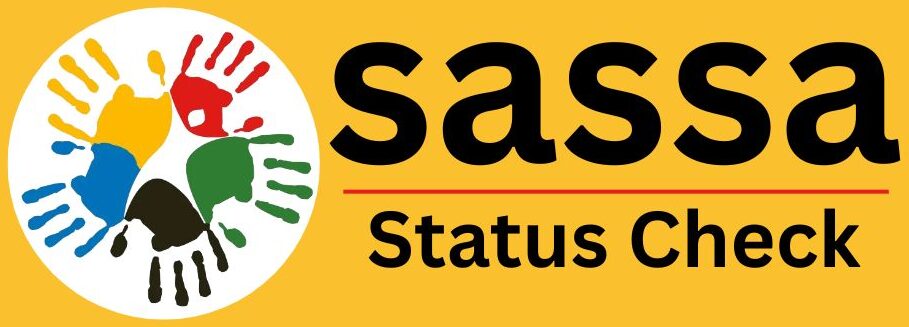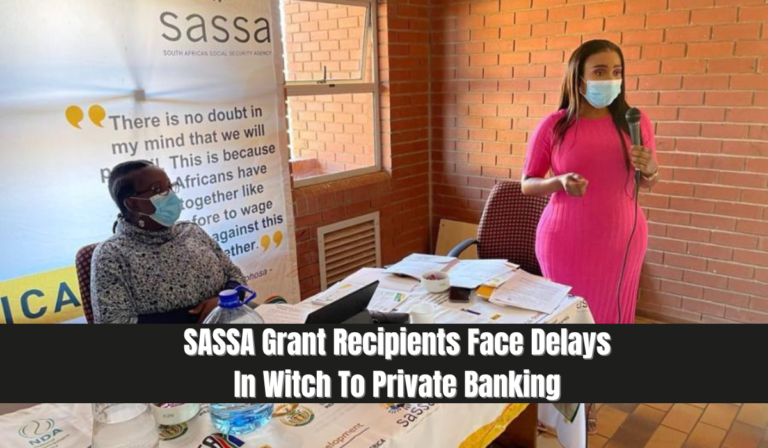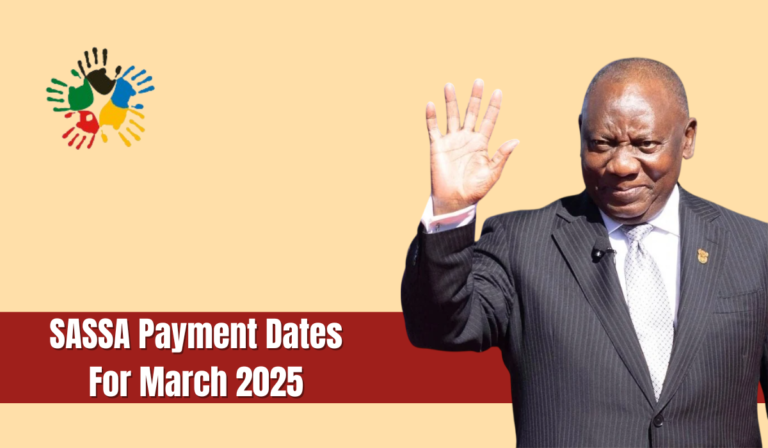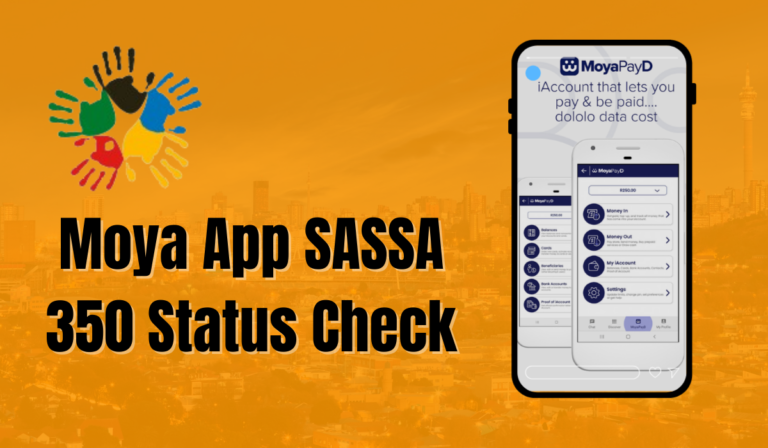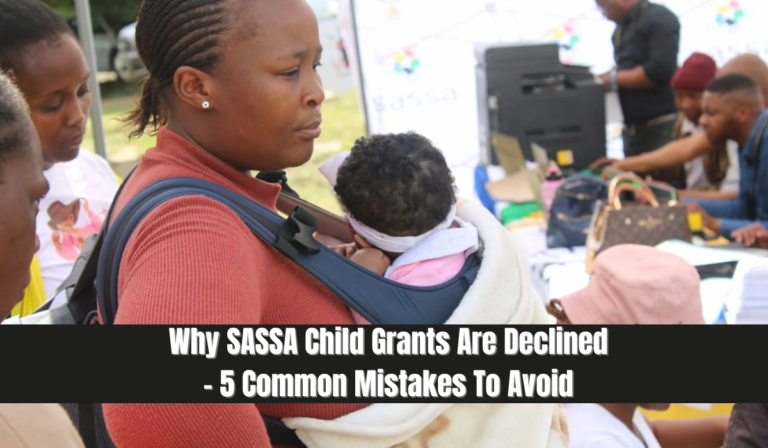Bedridden Granny Misses Deadline For SASSA Card Swap
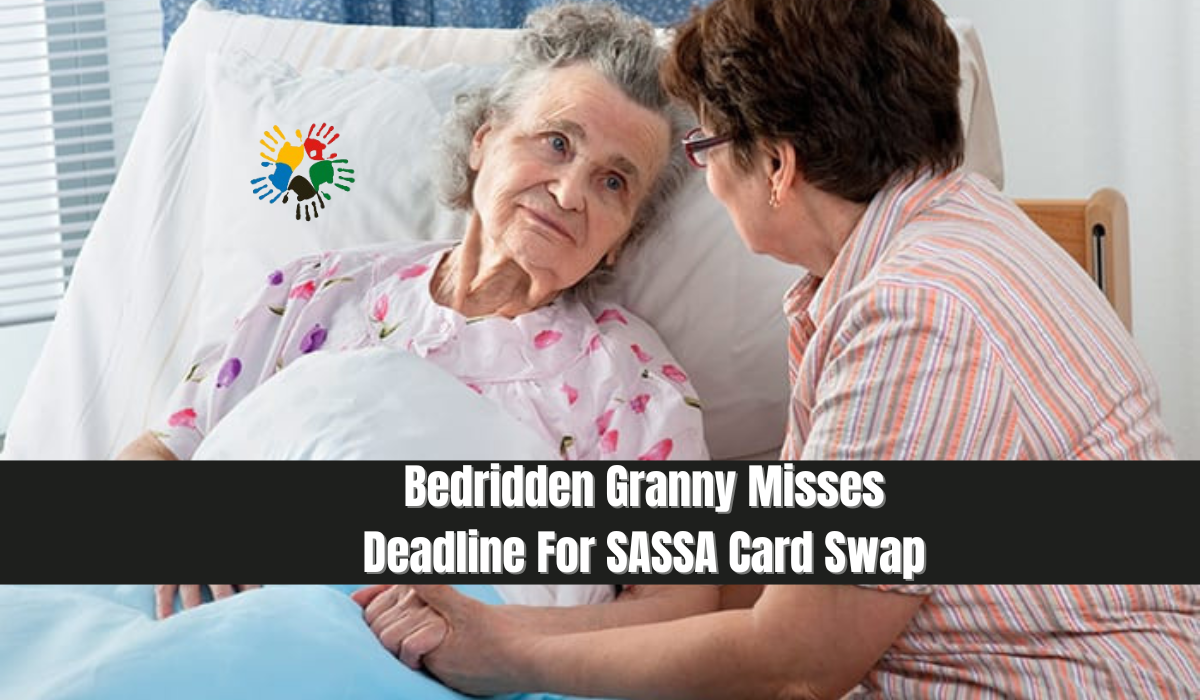
Bedridden Granny Misses Deadline For SASSA Card Swap. The South African Social Security Agency (SASSA) has recently faced immense challenges as it works to migrate social grant beneficiaries from the expiring gold SASSA card to the new Postbank black card. Among those struggling with the process is Angeline Johannes, a 71-year-old bedridden grandmother from Wellington, who, along with over one million beneficiaries, missed the SASSA card swap deadline on Thursday.
This transition, which was intended to enhance security and streamline social grant payments, has instead resulted in chaos and frustration for elderly, disabled, and bedridden beneficiaries. Despite assurances from SASSA and Postbank, many vulnerable individuals are still waiting for assistance. This article explores the challenges faced by beneficiaries, the responsibilities of SASSA and Postbank, and what affected individuals can do to resolve their issues.
The SASSA Card Swap Process
Why Is the Card Swap Necessary?
The gold SASSA card was introduced years ago as a secure payment system for social grant recipients. However, these cards are expiring, requiring beneficiaries to transition to the Postbank black card or migrate to a bank of their choice. The goal is to ensure:
- Better fraud prevention and security measures
- Seamless grant payments to all eligible beneficiaries
- More banking options for recipients who prefer private banks
Despite these intentions, the implementation has been anything but smooth.
Challenges Faced by Vulnerable Beneficiaries
Lack of Home Visit Services
Many elderly and disabled grant recipients are unable to visit SASSA offices or Postbank card swap centers in person. Angeline Johannes, for example, has severe arthritis and is completely bedridden, making it impossible for her to leave her home to replace her SASSA card.
Her daughter, Nicolet van der Westhuizen, followed the procedure and added her mother’s name to the home visit list on February 16. However, months later, no one had come to assist her. This has left many families feeling abandoned, as home visits are essential for those who cannot physically visit migration sites.
SASSA and Postbank Delayed Response
Both SASSA and Postbank have promised home visits, but beneficiaries and their families report long delays and a lack of follow-through. Van der Westhuizen stated that she repeatedly contacted a SASSA representative named Basil, who promised assistance but never arrived.
SASSA Western Cape spokesperson Shivani Wahab acknowledged the issue and stated that Postbank is responsible for arranging home visits. However, Postbank spokesperson Bongani Diako clarified that home visits are granted only after a strict assessment of each case.
This bureaucratic back-and-forth has left many vulnerable without access to their social grants, worsening their financial and emotional distress.
Difficulty Opening Bank Accounts
Beneficiaries who opt to migrate to private banks also face complications. Van der Westhuizen tried to open a bank account on behalf of her mother, but her request was denied. Banks have strict identity verification requirements, making it difficult for bedridden individuals to authorize someone else to manage their finances.
This raises concerns about accessibility for the disabled and elderly, especially for those without a trusted person to assist them.
Official Responses from SASSA and Postbank
SASSA’s Role in the Card Swap
SASSA is responsible for:
- Registering beneficiaries for home visits
- Coordinating with Postbank to ensure grant recipients receive their cards
- Providing alternative options for those unable to collect their cards in person
Postbank’s Role in Home Visits
Postbank is in charge of:
- Assessing and approving home visit requests
- Sending teams to residential homes, nursing homes, and other facilities
- Helping beneficiaries authorize a trusted individual for grant withdrawals
How Are Beneficiaries Being Assisted?
- A trusted individual can be nominated to manage the grant payments if a beneficiary is incapacitated.
- Beneficiaries must sign a Postbank Account Access Authority letter to grant authorization.
- Home visits must be booked in advance, and requests should be made directly through SASSA or Postbank.
How to Apply for a SASSA Card Swap Home Visit
Step-by-Step Process to Request Home Assistance
To request a home visit for a SASSA card swap, beneficiaries or their family members must follow these steps:
- Visit a SASSA Local Office: Speak to an official and add the beneficiary details to the home visit list.
- Call the SASSA Customer Care Centre: Dial 0800 60 10 11 to submit a request over the phone.
- Contact Postbank Directly: Call 0800 53 54 55 to request a home visit.
- Provide the Beneficiary’s ID Number: The ID number will be used as a reference for any follow-up inquiries.
- Wait for Confirmation and Scheduling: Once approved, Postbank officials will schedule a home visit appointment.
What Happens if You Missed the Deadline?
Can You Still Swap Your SASSA Card?
Yes. Beneficiaries who missed the Thursday deadline still have time to replace their gold SASSA card.
Deadline Extension and Urgent Assistance
SASSA has urged those who have not yet swapped their cards to do so by June. Beneficiaries are advised to act immediately to avoid payment disruptions.
Where to Replace Your Expired SASSA Card?
- Local SASSA offices
- Postbank branches
- Major participating banks
Required Documents for Card Swap
| Document Type | Purpose |
|---|---|
| ID Document or Passport | To verify the beneficiary’s identity |
| Old Gold SASSA Card | To confirm previous grant payments |
| Proof of Residence | Required if updating personal details |
| Bank Account Details (if applicable) | For those choosing private bank transfers |
Conclusion
The SASSA card migration process has exposed major flaws in how social grant services are handled, particularly for the elderly, disabled, and bedridden beneficiaries. The case of Angeline Johannes and over one million others shows that without efficient home visit services, vulnerable individuals are left struggling to access their lifeline grants.
